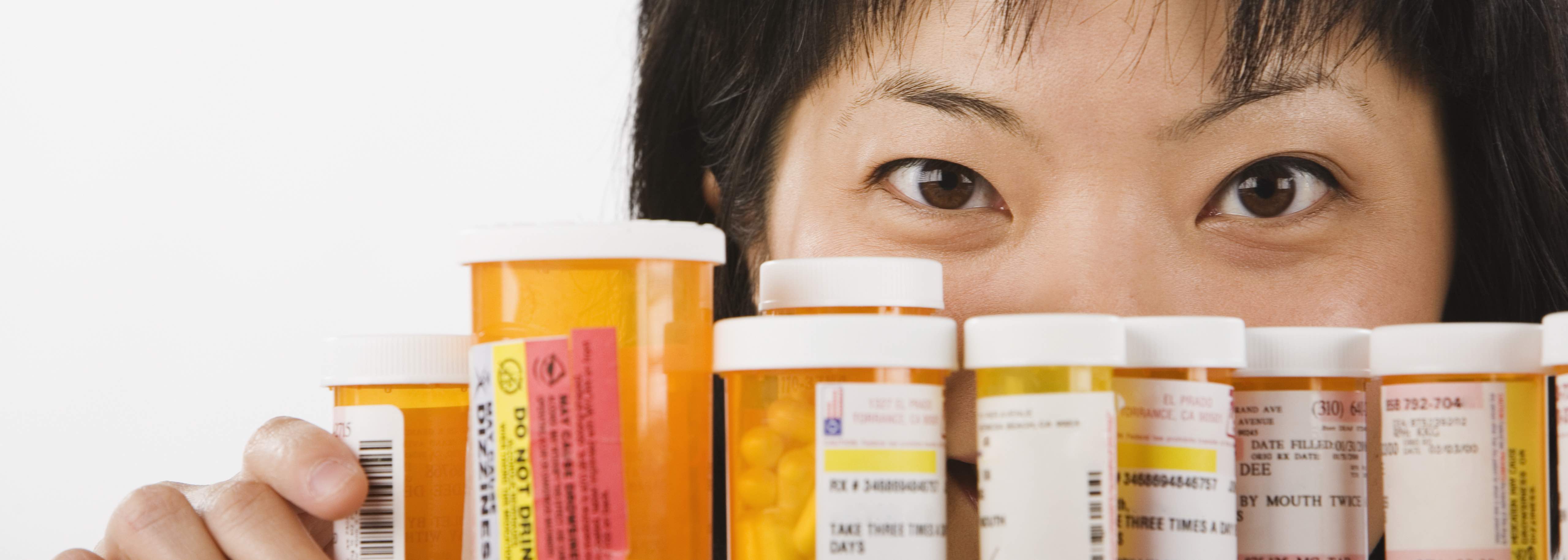
The holidays are typically joyous, full of celebrations and time with loved ones. Unfortunately, it’s also one of the deadliest times of year due to impaired driving. That’s why each December, the president of the United States issues a memo urging people to partake in National Impaired Driving Prevention Month. Understandably, the focus of most outreach efforts involves creating awareness for drunk driving, but alcohol isn’t the only thing that can impair driving; some medications can as well.
Which Medications Pose Risk?
A number of prescription and over-the-counter medications can impair driving. Moreover, sometimes even small doses of the medications can impair driving if a person has gone off schedule, is mixing medications, or consumes alcohol alongside them. Busy holiday schedules, which also cause some to miss out on sleep, can further enhance the effects of some medications. Research presented by Find Law concludes that the following six categories pose the greatest risk:
Pain Medications: Opiates, including morphine, codeine, and hydrocodone, pose a risk because they naturally make people sleepy, dizzy, or disoriented. However, even pain relievers like ibuprofen and Tylenol that don’t have the same side effects can cause trouble too, as pain tends to exhaust people. Once the pain is diminished, it’s easier to fall into a relaxed state and become drowsy or less aware.
Antidepressants: Some antidepressants work by relaxing an individual. As sedatives, they also impair driving and can cause symptoms that mimic excessive alcohol consumption.
Valium: Often prescribed to relieve anxiety or to reduce seizures, valium is a strong sedative. “10 mg of the popular tranquilizer can cause impairment similar to having a blood-alcohol concentration of 0.10 percent,” according to Find Law.
Antihistamines: Some antihistamines, such as Benadryl, are known to cause drowsiness.
Decongestants: Medications like ephedrine (found in traditional Sudafed) can make people jittery, anxious, and disoriented, while others cause drowsiness.
Sleeping Pills: While most wouldn’t dream of taking sleeping pills and then getting behind the wheel right away, it can take them a considerable amount of time to wear off too. That means some may still suffer from grogginess the morning after taking a sleep aid.
What to Do When Medications Impair Your Driving
Naturally, driving while drowsy, disoriented, or distracted is dangerous, so the primary concern of taking these and similar medications is the risk of causing an accident. However, because of the high number of drunk drivers on the road this time of year, there is also much more patrolling by law enforcement. Those exhibiting any signs of impaired driving have a high likelihood of being stopped. Even those with no alcohol in their systems can still receive a ticket for driving under the influence (DUI) if medications are found in their systems, which comes with the same consequences as a drunk driving charge. To avoid these risks, consider some of the following strategies:
Talk to your doctor. If you’re on a medication that you know impairs your driving, have a frank conversation with your physician about how it impacts your life and see what alternate options are available. Under your doctor’s guidance, you may be able to discontinue, reduce, or change your medication. Other times, talking the medication at a different time of day when you won’t be behind the wheel may be a possibility.
Take public transit. If changing up your medication in some way is not a possibility, see if your region's transit system is. Many major metropolitan areas offer special transportation services for the elderly and disabled which puts it within reach for people who might otherwise have trouble getting to a bus, train, or subway.
Carpool. Just as people who partake in alcohol while out should arrange for a designated driver, those on specific medications can too.
Hail a ride. Taxis or companies like Lyft can often have a driver at your door within minutes, depending on where you live.
RefillWise Can Help
Whether you have medications you need to take regardless, or your doctor recommends you switch to a new medication that isn’t covered by your insurance, RefillWise can help keep your costs lower. Moreover, by using our free prescription discount card, you’ll accrue rewards that you can use on anything from groceries to thank-you gifts for those who are able to fill the designated driver role. Get your RefillWise card by signing up on our site or texting JOIN to 22822.

Drug safety in the home isn’t something many of us consider. We may curse a medicine bottle's child protection “features” slowing us from taking a dose, but overall, we’ve become very complacent. Looking at opioids alone paints a very grave picture. Data from Johns Hopkins University Bloomberg School of Public Health indicates 73% of adults surveyed understand that children are more susceptible to opioid overdose, but a mere 13% have concerns over their children accessing them. What’s more, only 12% store their medications safely. Kids aren’t the only ones at risk, though. Read on to find out more about how your medications may be putting you and your family in danger, and what you can do about it now.
1) More than 80,000 Children are Hospitalized for Overdoses Each Year
Data regarding drug overdoses is incredibly difficult to come by, as most statistics lump together all poisonings, including children who are exposed to pesticides and household cleaners. However, we do know that these things together sent more than 600,000 children aged 17 and under to the emergency room over the past five years, and, historically, around 70% of all cases involve medications. In fact, overdose deaths among children nearly doubled between 1999 and 2015. Despite the prevalence of childhood overdoses, the trend shows no signs of slowing.
Prevention Tips for Childhood Medication Overdoses
Lock all your medications up. One-in-five children who overdose sneak the medication from unaware caregivers. Various options to secure medications are available, from cabinets to special lockboxes. Find a solution that works for you and make sure children do not have access to the key.
Never compare medicine to candy when talking to children. It can be tempting to encourage kids to take their medicine by telling them it tastes like candy, but this may cause a child to believe medications are not dangerous. Moreover, many do look and taste like treats, which can cause further confusion.
Dispose of patches properly. Many medications now come in patch form, which can seem like stickers to children. Despite already being used, they often contain enough of the medication to cause death or illness. Patches should always be disposed of in accordance with the manufacturer’s guidelines, while keeping them out of reach of children. Consider taking them straight to your outdoor bin if you have children in your home, or to your local collection site on National Prescription Drug Take Back Day, October 28, 2017.
Carefully measure doses. Even acetaminophen (Tylenol) has the potential to kill, and it sends more than 7,000 kids to the ER yearly. Sadly, about 18% of them are given the medication by caregivers.
2) One-in-Four Teens Admits to Abusing Prescription Drugs
According to Partnership for Drug-Free Kids, “misuse and abuse of prescription drugs is now a normalized behavior among teens,” with nearly one-in-four self-reporting they have abused a prescription drug at least once. This equates to roughly 5.5 million kids, and around 16%, or 2.7 million teens, have abused a stimulant, such as Adderall or Ritalin. Painkillers are a big draw as well, with 10% admitting they’ve abused one within the past year. The FDA further warns of potentially deadly “pharm parties.” During these gatherings, kids bring drugs to share with their friends, often from a medicine cabinet at home. It’s no surprise, then, that 49% of teens who abuse prescription drugs say they’ve gotten them from friends.
Prevention Tips for Teen Prescription Drug Abuse
Lock your medications up. Many parents mistakenly believe that risks reduce as their children age or that their child won’t be one to abuse prescription drugs. The Johns Hopkins survey indicated parents have less concern and are less likely to lock up meds as their children age. At the same time, information from Partnership indicates that 56% of teens think it’s easy to get medications from their parents’ medicine cabinet, and 42% of those who abuse medications say they take them from the medicine cabinet at home.
Don’t share your medications with anyone. Around 20% of parents admit to sharing prescriptions with their kids, which creates a nonchalant attitude about sharing medications. Understand the dangers of prescription drug use and talk to your kids about them. One of the greatest indicators of teen drug abuse is parental stance. Nearly one-third of parents erroneously believe ADHD meds can help their child academically, even if he or she has not been diagnosed with the condition. Moreover, 16% of parents think prescriptions are safer than street drugs.
Get rid of your old or unused medications. It’s estimated that 17% of households keep unused medications around. They should be discarded in accordance with the label. Find a drug collection center if you are unsure how to properly dispose of a medication. Participating in National Prescription Drug Take Back Day on Saturday October 28 is a great first step in tossing your old, unused, or unneeded medications.
3) Adults Aged 45–54 Are the Most Likely to Die from an Overdose
While overdose and abuse among children and teens is still cause for concern, it’s adults who are most likely to die from an overdose. The 45-54 age group has the highest rate of death, at 30 deaths per 100,000 individuals, according to the CDC. Compared to people aged 15-24, those in the age groups of 25–34, 35–44, 45–54, and 55–64 are twice as likely to die of an overdose. It would be easy to chalk these deaths up to suicide, but medical examiners conclude at least 80% of these deaths are unintentional. The greatest culprit is opioids, namely drugs like methadone, oxycodone (OxyContin®), and hydrocodone (Vicodin®), with more than 1,000 people visiting emergency rooms daily after failing to take opioid medications as prescribed.
Prevention Tips for Adult Overdose
Follow your doctor’s instructions. Many people try to “catch up” missed doses by taking more than prescribed, or take more to cope with greater pain. This can prove to be the start of a vicious cycle or a deadly mistake. Be aware that you will build up tolerance to certain medications. One of the greatest dangers of opioids is that people build up a tolerance to them, so more of the medication is needed over time. If you feel like your medication isn’t helping like it used to, talk to your doctor about alternatives or changing your dose.
Be aware that tolerance can reduce rapidly. Under certain circumstances, such as if a person has been ill, not eating, or not taking a dose as prescribed, the tolerance level can go down. The same is true when a person moves from a short-acting to a longer-lasting dose. If a person is unaware that their tolerance has reduced, it’s easy to ingest toxic levels of medications just by taking a normal dose.
Teach your family about symptoms of an overdose and what to do in an emergency. Prescription drug overdoses can become fatal quickly and most happen at home. Talk with your loved ones and teach them what to look for and what to do in case of an emergency, as time is of the essence.
4) Overdoses Come with Many Tell-Tale Signs
Being familiar with the signs of overdose can save a life. Learn the symptoms and share them with your friends and family.
Drowsiness: If a person becomes drowsy for no reason or is not responsive, treat it as a medical emergency. Do not let them fall asleep or attempt to “sleep it off,” as you won’t be able to monitor them and their condition could worsen. It’s also unwise to let them shower in attempt to wake up or make themselves feel better because the temperature change can send them into shock.
Vomiting or Abdominal Pain: Many medication overdoses present with vomiting or severe upset stomach.
Breathing Troubles: Medications such as opioids suppress the respiratory system, so a person may have difficulty breathing or may stop breathing altogether.
Loss of Coordination: Issues like loss of motor control and coordination may signal an overdose or other medical emergency.
Seizures: Though rare, seizures, or uncontrollable muscle contractions, can be a serious warning sign.
Skin Changes: It’s common to see a variety of skin changes in someone experiencing an overdose. Occasionally, the skin may become warm to the touch, though an individual will typically become pale and clammy. If breathing issues are present, a person’s mouth and nails may become bluish as well.
Mood Changes: Sometimes, a person will present with typical Hollywood-style mood changes, such as extreme aggression and irritability. However, anxiety and depression-like symptoms are just as common.
5) You Can Throw Away Your Ipecac
According to the Mayo Clinic, ipecac syrup is no longer recommended. In fact, doing anything to induce vomiting, even if overdose is suspected, can be dangerous.
Tips for Dealing with an Overdose
Learn CPR in advance. This will keep oxygen and blood flowing until emergency crews arrive. If it’s been a few years since you took a class, take a refresher course.
Keep Narcan (also called “Naxolone”) on hand if taking prescription opioids. Narcan is fast-acting and will counter the effects of an opioid overdose. It comes in an injectable form as well as a nose spray. Your friends and family should know where yours is stored and be familiar with how to administer it. You will still need to be checked by a medical professional afterward, but it can save your life.
Perform a quick inspection. Make sure the person does not have anything lodged in his or her mouth, and gather up any bottles of medications that he or she may have taken. The emergency response team will ask questions about any medications the person takes.
Be calm and call 911. Time is precious. If you suspect an overdose, call emergency services right away, even if the person tells you not to. Fast action from trained medical professionals can save a life.
A Final Word from RefillWise
Prescribed medications save lives and improve the quality of lives of people every day, but they do need to be kept properly and taken as instructed. We believe that everyone should be able to live life to its fullest, which is why we’re committed to providing the public with helpful information about prescriptions, as well as access to life-enhancing medications at reduced costs. Whether you take regular medication or your doctor has prescribed a single dose of something like Narcan to keep on hand, our free prescription discount card can make affording your medications easier. Sign up for your free RefillWise prescription discount card on our website or text JOIN to 22822 now.

If you’re looking for a good excuse to chat about your teeth, you get a free pass this October. Known officially as National Dental Hygiene Month, the month-long celebration offers the opportunity to behave like a dentist or let someone know just how important it is to floss. However, if you’re one of the millions of Americans who suffer from dry mouth, clinically referred to as xerostomia, the simple act of talking or extending your tongue can range from mildly unpleasant to downright uncomfortable. The good news is, xerostomia symptoms are fairly easily treated.
What Causes Xerostomia
Occasionally, excessive dry mouth has no known cause, but there are many things that can stop the production of saliva and result in it. The condition is seen most often in certain demographic groups, such as seniors. Specific medications are linked to it, as well as several other medical conditions.
Common Medications Linked to Xerostomia
Antibiotics
Antidepressants
Antihistamines
Anxiety Medications
Blood Pressure Medications
Decongestants
Diuretics
Overactive Bladder Medications
Parkinson’s Disease Medications
Muscle Relaxers
Pain Medications
Common Medical Conditions Linked to Xerostomia
Alzheimer's Disease
Anxiety
Depression
Diabetes
Head or Neck Cancer (while receiving radiation therapy)
Lupus
Parkinson’s Disease
Rheumatoid Arthritis
Sjögren Disease
Stress
Stroke
Why Treatment is Essential
Naturally, those who suffer from xerostomia generally want to correct the problem because their mouth feels uncomfortable or because they want to eliminate some of the other symptoms associated with it. However, the condition can lead to much bigger problems, such as oral infections and tooth decay. This is because saliva keeps the mouth healthy. It regulates pH and helps move food particles away from the teeth, and, perhaps most importantly, it bathes teeth and oral tissue in minerals and good bacteria. Without saliva, the bad bacteria that causes tooth decay can sometimes thrive, the minerals that teeth soak up to stay strong deplete, and tissues lose their protective coating, creating the perfect environment for decay, tissue damage, and infections.
Treatment for Xerostomia
Talk to your doctor. It’s important for a medical professional to evaluate your condition, identify its cause, and determine the best possible treatment for your needs. Your physician may recommend that you switch medications or recommend an alternate treatment. For example, if your condition is worsened by mouth breathing, your doctor may investigate causes like allergies or sleep apnea.
See your dentist twice a year or more. Regular dental care is absolutely necessary if you’re in a high-risk category for decay. Most people should visit twice per year, but your dentist may suggest you visit three or four times if you have specific medical conditions or have a high decay rate. Moreover, your dentist may recommend fluoride to help prevent cavities or another type of mineralizing agent to strengthen your teeth if you’re at risk for decay, in addition to treating the xerostomia.
Use alcohol-free oral hygiene products. If you’re a fan of mouthwash, select an alcohol-free variety. There are many over the counter dry mouth products, such as mouthwash, gel, lozenges and spray that moisturize and protect your mouth.
Suck on sugar-free candy and mints. This increases the production of saliva. Look for something containing the sugar substitute xylitol for its added cavity-fighting benefits, but use it in moderation because it can cause diarrhea in some people with sensitivities.
Cut out tobacco and spicy foods. These can worsen xerostomia.
Drink lots of water. Naturally, staying hydrated will reduce the symptoms associated with dry mouth.
Practice good oral hygiene. To stave off cavities, be sure to brush and floss after every meal.
Run a humidifier. Adding moisture to the air will help keep your oral tissues moist.
RefillWise is Your Partner in Fighting Xerostomia
When consulting with your healthcare provider, know that RefillWise can make prescription options needed to treat conditions and symptoms commonly linked with xerostomia more affordable. Our free card saves 40% on average at all chain and most independent pharmacies. Stick your tongue out at xerostomia. Sign up for your free RefillWise pharmacy discount card or text JOIN to 22822 to instantly save on prescriptions while earning cash rewards for over the counter remedies and other necessities right away.
Did you know that one-in-five Americans suffers from a mental illness? According to the National Alliance on Mental Illness (NAMI), more than 18% of the population (or about 42 million people) live with an anxiety disorder and nearly 7% (or 16 million people) suffer from major depression. This is much more than a case of the blues or simply feeling down, and it has a massive impact on the lives of the people it touches, as well as on their loved ones.
October 2 - October 8 is Mental Illness Awareness Week
If you or someone you care about is struggling with a mental health condition, it’s important to remember that you’re not alone. Chances are, there is someone in your office, your classroom, or on your street who is coping too, though there is also a good chance one of you isn’t getting treatment. Only about 40% of adults and 50% of children receive the help they need. You deserve to live a healthy and full life. It’s time to get help.
Shake Off the Stigma
You are not your illness. Many people feel as if their illness is their identity. It’s important to remember that this is a medical condition you didn’t ask for; the same as diabetes, a broken limb, or even cancer. It does not define you.
Your illness is not a reflection of your character or worth. Several conditions, especially depression, can make people feel as if they’re not worthy or fill them with self-doubt. Recognize that this is a symptom and that it will fade when you get treatment.
Join a support group. Surrounding yourself with people who understand your condition can help you navigate the waters of treatment and remind you that you’re not alone.
Talk openly about mental health. We’ve come a long way as a society in terms of how we view and treat mental illness, but firsthand accounts and openness will further reduce the stigma.

Get Help
Find a mental health professional who will work with you. Some help is better than none, but general practitioners do not have the same training as psychologists, psychiatrists, and counselors. Whenever possible, seek out a specialist who truly understands your condition so that you get the best possible care.
Take your medications as prescribed. Most mental health medications require regular doses at specific intervals and they take time to build up to full efficiency. Always take your medications as directed, and talk to your doctor if you have side effects or don’t feel like it’s working. You may need a different dose or type of medication. If you can’t afford the medication you’ve been prescribed, consider signing up for a free RefillWise pharmacy discount card.
Talk to your boss or school counselor. Just having people know what you’re dealing with can be a huge relief. However, school counselors can put you in touch with resources and support groups as well, and your boss may be able to provide accommodations.
Take advantage of the Americans with Disabilities Act, if need be. People with mental illnesses are protected under the ADA, and you have a right to reasonable accommodations from your employer in most cases. If those accommodations allow you to live a more normal life or make it possible to get treatment, make use of them – it’s your legal right to do so.
Mental health issues cannot be cured overnight and, in some cases, require a lifetime of treatment. However, you are worth the time and investment. Get the help you need to live a full and happy life.
Sign Up for RefillWise
The RefillWise card offers a wealth of benefits, including discounts on common medications, such as antidepressants and those used to treat addictions. If the cost of prescriptions is preventing you from getting the help you need, sign up to receive your free RefillWise card today.

Summer is here, and with it comes fun, such as barbecues and swimming. As you gear up for the season, don’t forget to include these healthy tips.
1) Hydrate
You’ve probably heard that you need to drink eight glasses of water per day in order to be fully hydrated. That’s not really true. Oddly enough, it’s a statistic created with no medical basis, but we do know people need water – and lots of it. If it helps, you can aim for eight glasses, but really all you need to do is drink when you’re thirsty or hungry. People often forget, don’t listen to their bodies, sweat more during summer months, or drink caffeinated beverages, which can cause dehydration — and that’s where the trouble starts. Your skin, brain, digestive system, muscles, bones, and just about every part of you works best when you keep up the fluids. Keep a bottle of water with you at all times to sip throughout the day. If you’re not a fan of water by itself, try adding a slice of citrus fruit or drinking it chilled with ice.
2) Block Out the Sun
It may seem counter-intuitive to add more layers when it’s warm out, but your skin needs protection. Lightweight clothing and sunblock are important, even if you aren’t planning to spend much time outside. Wide-brimmed hats can help keep you cool and protect your face as well. You’ll also want to keep your eyes protected, as UV rays are known to cause cataracts. Throw on some sunglasses, too!
3) Stay Indoors if You’re Heat or Photo Sensitive
Children, the elderly, and pets can be particularly vulnerable to the heat. There are medical conditions and medications that may make you sensitive to heat or sun exposure. If you fit into one of these categories or care for someone who does, stay inside as much as possible. The hours between 10 a.m. and 4 p.m. tend to be most grueling, so try to plan your activities around the hottest part of the day.
4) Bring Color to Your Dinner Plate
Some of the best produce found all year is available during summer months. This is a great time to stock up on berries and other colorful items from your local farmer’s market. Keep in mind that color is usually associated with different health benefits. For example, yellow and orange fruits and vegetables are generally known for having lots of Vitamin C and Vitamin A. Purple produce tends to be high in Vitamin C and Vitamin K. You can also gobble up lots of Vitamin K, Vitamin B, and Vitamin E when you go green. Check out “Eat a Colorful Variety Every Day” for fun ways to add variety to your plate.
5) Practice Water Safety
Watch kids around water, even if they aren’t planning to take a dip, and be sure to have life jackets on hand for the little ones. If you haven’t been certified in CPR lately, take a refresher class. Better yet, enroll the whole family, so everyone will be protected.
6) Exercise Cautiously
You shouldn’t give up fitness during the summer months, but it is a good idea to reschedule your outdoor activities for early morning or evening. You can also exercise indoors by enrolling in a gym or participating in wellness activities like Wii Fit or table tennis.
7) Travel with Care
If you’re leaving the country, you may require vaccinations to go to specific destinations. Vaccines may be required weeks or months before your trip, and the CDC recommends taking prescription medication with you to some places. During summer months, the risk of exposure to ticks and mosquitos goes up, too. Both carry diseases, so wear bug repellent, drain stagnant water, and avoid areas where pests are active.
Stay Well with Help from RefillWise
Our prescription discount cards can make purchasing prescriptions and medical equipment you may need to pack for your next vacation more affordable. Sign up for your free RefillWise prescription discount card or text JOIN to 22822 to start saving an average of 40% at the pharmacy today.




